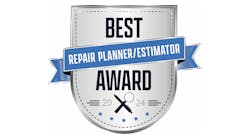June 25, 2018—For eight years, everybody was pointing fingers at everybody else, Billy Walkowiak said.
“Three years ago,” said Walkowiak, CEO of Collision Safety Consultants, “I met with [Rep. John Torbett], and asked, “Can you find out who enforces this? Because it’s a law, right? And nothing happens to anybody who breaks this law.”
And just what law is Walkowiak referring to? For years, North Carolina law required that diminished value be covered. If a claimant and the insurer cannot agree on what a vehicle has lost in value, an appraiser would evaluate the vehicle.
However, the process would often get bogged down, Walkowiak say, as appraisers would go back and forth on a fair payout, leaving the claimant at the wayside. And the claimant wouldn’t be able to do anything about it because nobody in the North Carolina government would claim jurisdiction. The DMB, the DOT, the attorney general’s office—none of those units enforced insurance laws.
So after pushing the issue, new language from House Bill 1007 was incorporated into the budget bill (SB99), which is now law. Now the insurance commissioner must enforce laws regarding third-party claims.
“If I were to file a complaint three years ago, there was nobody to talk to,” Walkowiak said. “Now the consumer can file complaint against the adjuster or appraiser for not following the guidelines of the state. It gives the (N.C.) Department of Insurance the ability to revoke or suspend the license of any adjuster or company that violates that statute.”
The language in SB99 regarding “Clarify Oversight Authority/Auto Appraisers” reads as follows:
d1) Such motor vehicle liability policy shall provide an alternative method of determining the amount of property damage to a motor vehicle when liability for coverage for the claim is not in dispute. For a claim for property damage to a motor vehicle against an insurer, the policy shall provide that if:
(1) The claimant and the insurer fail to agree as to the difference in fair market value of the vehicle immediately before the accident and immediately after the accident; and
(2) The difference in the claimant's and the insurer's estimate of the diminution in fair market value is greater than two thousand dollars ($2,000) or twenty-five percent (25%) of the fair market retail value of the vehicle prior to the accident as determined by the latest edition of the National Automobile Dealers Association Pricing Guide Book or other publications approved by the Commissioner of Insurance, whichever is less, then on the written demand of either the claimant or the insurer, each shall select a competent and disinterested appraiser and notify the other of the appraiser selected within 20 days after the demand. The appraisers shall then appraise the loss. Should the appraisers fail to agree, they shall then select a competent and disinterested appraiser to serve as an umpire. If the appraisers cannot agree upon an umpire within 15 days, either the claimant or the insurer may request that a magistrate resident in the county where the insured motor vehicle is registered or the county where the accident occurred select the umpire. The appraisers shall then submit their differences to the umpire. The umpire then shall prepare a report determining the amount of the loss and shall file the report with the insurer and the claimant. The agreement of the two appraisers or the report of the umpire, when filed with the insurer and the claimant, shall determine the amount of the damages. In preparing the report, the umpire shall not award damages that are higher or lower than the determinations of the appraisers. In no event shall appraisers or the umpire make any determination as to liability for damages or as to whether the policy provides coverage for claims asserted. The claimant or the insurer shall have 15 days from the filing of the report to reject the report and notify the other party of such rejection. If the report is not rejected within 15 days from the filing of the report, the report shall be binding upon both the claimant and the insurer. Each appraiser shall be paid by the party selecting the appraiser, and the expenses of appraisal and umpire shall be paid by the parties equally. For purposes of this section, "appraiser" and "umpire" shall mean a person who as a part of his or her regular employment is in the business of advising relative to the nature and amount of motor vehicle damage and the fair market value of damaged and undamaged motor vehicles.


